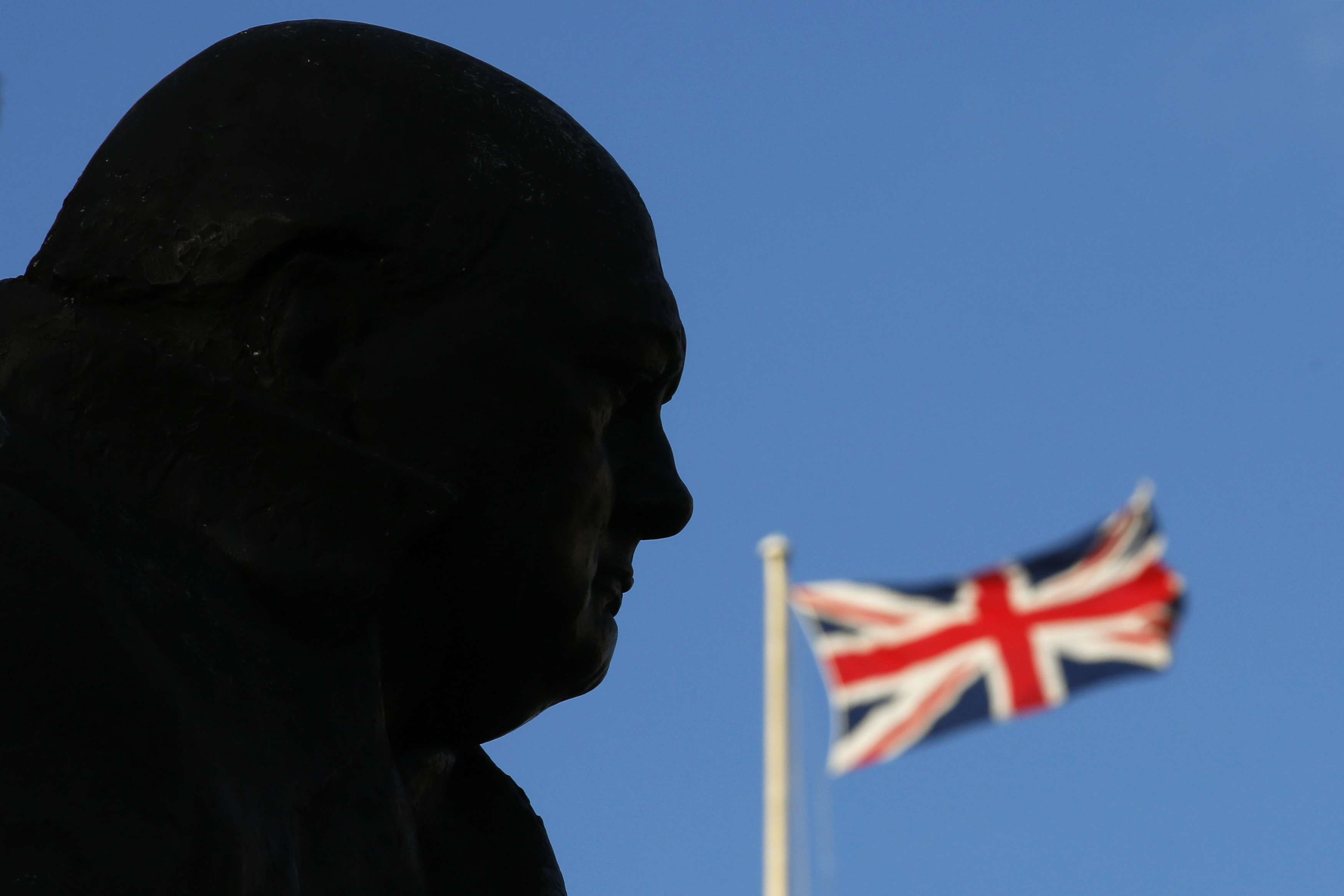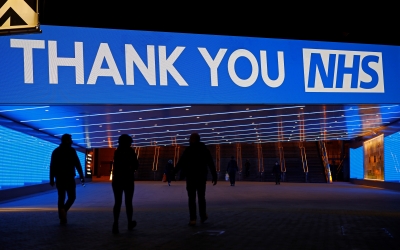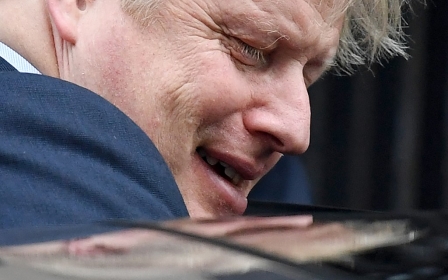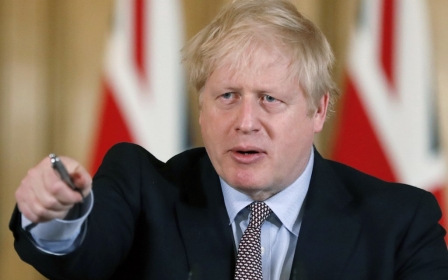Coronavirus: Boris Johnson is no Churchill. He is Chamberlain
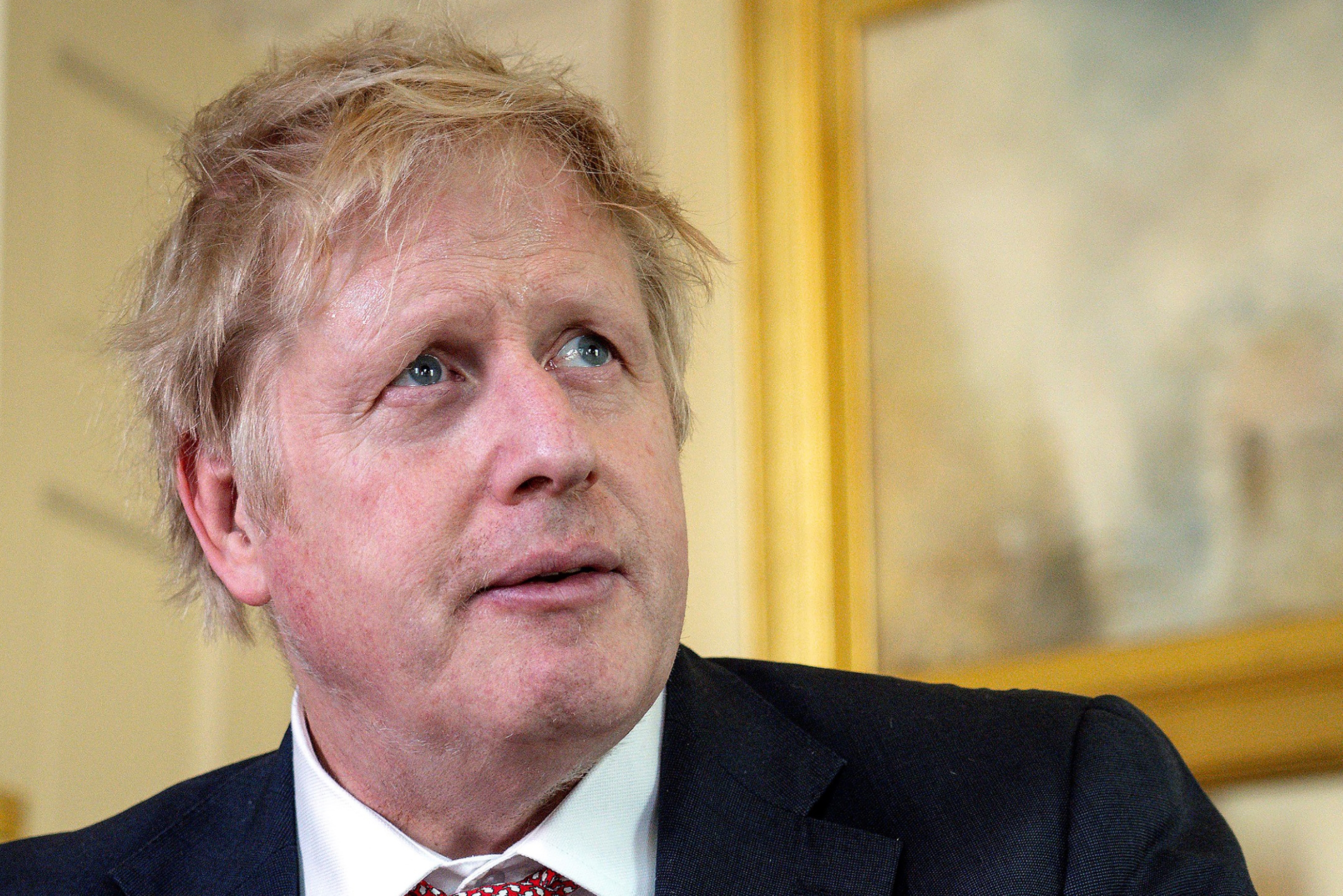
For the last year or two British Prime Minister Boris Johnson has gone to considerable lengths to suggest that he is heir to Winston Churchill, Britain’s greatest prime minister.
He has taken to adopting Churchill’s slow, stooped walk. He wrote a book about Churchill which, critics said, was intended to invite comparisons with the great wartime leader. More recently Johnson’s allies have appropriated Churchill’s catchphrase in adversity: Keep Buggering On (KBO).
Some students of history have found this pathetic. With reason.
The Churchill myth
At the heart of Churchill’s colossal story was the moment in May 1940 when he replaced Neville Chamberlain, who served from May 1937 to May 1940, as prime minister.
The Churchill myth may have helped Boris Johnson win the last election
France fell to Nazi Germany a few weeks later. Hitler had conquered Europe and Britain stood alone.
Churchill was the symbol of national resistance and the free world. Johnson has nothing even faintly comparable on his record. He and Churchill were both at one stage journalists, but that is as far as the similarity between the two men goes.
The Churchill myth may have helped Johnson win the last election as the only man who could "get Brexit done". Then along came a real crisis. A crisis involving the deaths of thousands and requiring decisive action.
A crisis which many – including the Queen, who lived through the conflict - has compared to World War Two. A crisis which nobody has anticipated: coronavirus.
The warning signs
Johnson was caught napping. His government has made a series of bad decisions and unforced errors.
This weekend's Sunday Times investigation painted in excruciating detail a picture of a complacent prime minister who failed to notice the warning signs, took the wrong advice, followed the wrong strategy and failed to see the looming threat long after others had raised the alarm.
Johnson failed to notice the warning signs, took the wrong advice, followed the wrong strategy and failed to see the looming threat
The direct opposite of Churchill in fact.
For Chamberlain facing the threat of Nazi Germany, read Johnson dealing with coronavirus. Both misread their enemy. Both fell down on the job.
The details in the Sunday Times article are devastating. Johnson did not bother to attend the first five meetings of the Civil Contingencies Committee (COBRA).
On Sunday, loyal colleagues played down the importance of this, saying it was normal for the prime minister to be absent. They said that others stood in for him and his absence made no difference.
Piffle. Cobra always meets in national emergencies: hence the need for the prime minister to be present. It goes without saying that he or she can’t always be there. But Johnson didn’t attend any of the first five meetings. Not one.
When Johnson finally attended on 3 March, the die had been cast.
A life and death period
The Sunday Times quoted an adviser to Johnson: "There’s no way you’re at war if your PM isn’t there. What you learn about Boris was he didn't chair any meetings. He liked his country breaks. He didn't work weekends. It was like working for an old-fashioned chief executive in a local authority 20 years ago. There was a real sense that he didn’t do urgent crisis planning.”
This commentary fits in with the known facts. For much of the crucial month of February, as the most deadly virus to strike Britain in a century started to enter the country, Johnson was not paying attention.
He was planning for Brexit. He allowed his advisers to unleash a pointless and destructive war against the civil service. He took a long break with his pregnant fiancee Carrie Symonds at his grace and favour country retreat of Chevening.
Whatever else he was doing during this life and death period, he was emphatically not taking the lead in the fight against coronavirus. Meanwhile the messages went out from Downing Street that Britain was "well prepared for any new diseases".
Johnson’s failure to take charge wouldn’t matter too much if someone else had gripped the situation and his government had handled the crisis capably and efficiently. But it didn’t.
We can now see that other countries – many others - reacted quicker and more adroitly.
The German example
Let’s take Germany. At the end of January it was as badly prepared as Britain. Thereafter, it was quick to ramp up tests and trace the contacts of those infected.
Johnson stands accused – with the Tory Party as a whole – of systematic neglect of the NHS over a long period of time
Not so Johnson’s government. Confirmed deaths from the virus in Germany are under 5,000. In Britain over 16,000. Britain has suffered more than three times as many deaths as Germany. Deaths per head in Germany stand at just over 50 per million; in Britain more than 200 per million have died.
It's important to note that some other countries have done even worse. In Spain, for example, more than 400 per million have died. Italy and France also have higher rates of mortality than Britain.
But Boris Johnson’s government was slow to recognise the need for supplies in personal protective equipment (PPE) for health workers, often for what look like ideological – ie anti-EU - reasons.
The Guardian reported last Monday, for example, that the government had missed three chances to join the EU scheme to bulk-buy PPE. Britain has also failed to obtain enough testing equipment. Even the government’s Chief Scientific Adviser Patrick Vallance suggested to ITV that testing had "not scaled as fast as it needs to scale".
Professor Jeremy Farrar, director of the Wellcome Trust and a pandemics expert on the Scientific Advisory Group for Emergencies (Sage), has said that Britain may now be on course to suffer more deaths than anywhere else in Europe.
Undermining the NHS
This brings me to a second point. Johnson did not only make short-term mistakes as the crisis struck. He stands accused – to be fair along with the Tory Party as a whole – of systematic neglect of the NHS over a long period of time which rendered us unprepared.
Johnson and Health Secretary Matt Hancock were among Tory MPs who voted against removing a pay rise cap for nurses in 2017. Johnson’s Vote Leave team repeatedly lied about the NHS during the Brexit referendum, repeatedly promising an extra £350m ($437m) per week would go to the NHS if Britain left the European Union.
At the heart of last year’s general election campaign was the claim that the Tories would be building 40 new hospitals. In reality, the government had only committed the money to upgrade six hospitals by 2025.
And Johnson’s Vote Leave campaign has waged a long political campaign against the low-paid foreign workers who play such a huge role in caring for the elderly and unwell. The campaign against foreign migrants worked powerfully during the referendum.
But it looks unpleasant and divisive today, and has drawn attention to a fundamental problem that has bedevilled the Johnson government since the start: it’s not fundamentally interested in governing. What it really understands is campaigning.
Spin over substance
To be fair, the idea of the so-called "permanent campaign" is not new. It was invented by former US President Bill Clinton, and imported to Britain by former Prime Minister Tony Blair. But Johnson’s Downing Street has taken it to new levels.
The truth is that the Johnson government has so far only been good at spin, less good at the substance
The truth is that the Johnson government has so far only been good at spin. These skills in media manipulation have been powerfully utilised to re-craft the prime minister’s public image. Good at spin. Less good at the substance. It ought to be the other way around. Especially during a pandemic.
Last night Downing Street crafted a response to the Sunday Times investigation. It contained some strong points. None was stronger than the government's dismissal of the loaded Sunday Times assertion that at the early stage it dispatched "279,000 items of its depleted stockpile of protective equipment to China during this period in response to a request for help from the authorities there."
The government response that “we provided this equipment to China at the height of their need and China has since reciprocated our donation many times over" is powerful and true.
Depart, in the name of god
Nevertheless, today Johnson is in trouble. Massive questions surround his competence to deal with the greatest health emergency for a century. In May 1940, after the early months of the war had gone terribly wrong, the Conservative Party moved ruthlessly to force out Chamberlain, the sitting prime minister.
Backbencher Leo Amery told Chamberlain on the floor of the Commons: "Depart, I say, and let us have done with you. In the name of God go."
The Tory mood has not yet turned sour on Johnson. Nor is there an obvious successor waiting in the wings as there was in 1940. Partly, it should be stated, because Johnson purged all opposition.
But confidence in his government is falling. Questions are being asked which even the ruthless Downing Street spin machine can’t answer.
This is important because the prime minister ultimately needs more than just Tory support. As Britain comes out of the lockdown, very hard life and death decisions will need to be made about the return to work in the year ahead. That means Johnson needs public trust.
His most difficult period lies ahead.
The views expressed in this article belong to the author and do not necessarily reflect the editorial policy of Middle East Eye.
Middle East Eye propose une couverture et une analyse indépendantes et incomparables du Moyen-Orient, de l’Afrique du Nord et d’autres régions du monde. Pour en savoir plus sur la reprise de ce contenu et les frais qui s’appliquent, veuillez remplir ce formulaire [en anglais]. Pour en savoir plus sur MEE, cliquez ici [en anglais].



